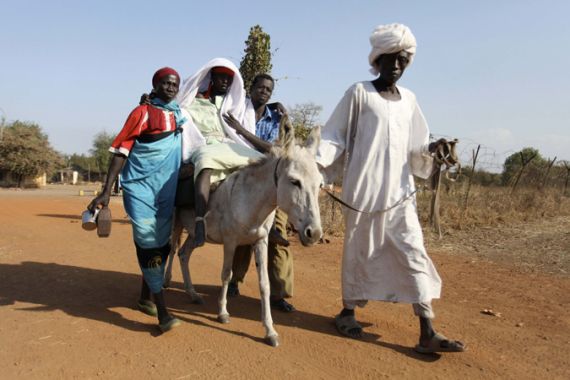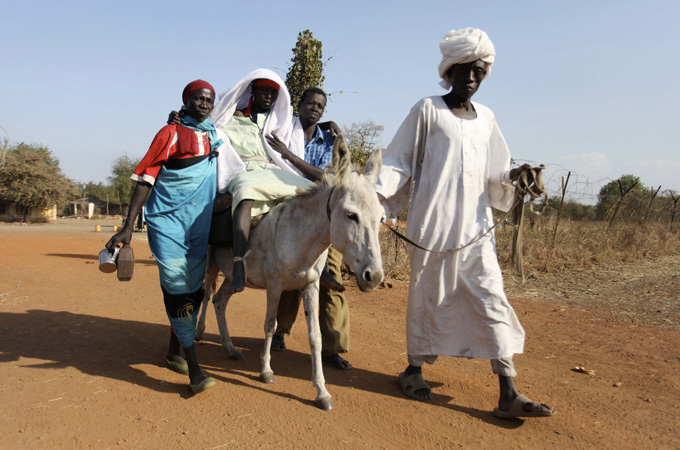Major aid operation launched in South Sudan
UN responds to call for help from central government after thousands flee inter-tribe conflict in Jonglei state.

 |
| Aid groups are responding to a call for help from the government after thousands fled their homes [REUTERS] |
Aid groups are mounting a “major emergency operation” in rural South Sudan after tribe-on-tribe violence sent tens of thousands of people fleeing and killed an unknown number of people, the UN said.
The UN says that three whole villages were burned to the ground and aid groups have evacuated 140 people who were wounded.
Keep reading
list of 4 itemsAfter the Hurricane
World’s coral reefs face global bleaching crisis
Why is Germany maintaining economic ties with China?
Lise Grande, the UN’s humanitarian coordinator in South Sudan, said on Saturday that aid groups are responding to a call for help from South Sudan’s central government.
A column of 6,000 armed men from the Lou Nuer ethnic group were reported to have marched into Pibor in Jonglei state to target the Murle community in late December and early January.
Neither the central government or the UN has been able to give a final death toll.
The Juba-based central government says it is launching an investigation. A government official in Jonglei has said that thousands of people were killed but that number has not been corroborated.
Thousands affected
Aid groups estimated that 60,000 people have been affected by the violence, the UN said, while tens of thousands have fled their homes and urgent needs include high-nutritional food, clean water, health care and shelter.
“This emergency operation is going to be one of the most complex and expensive in South Sudan since the Comprehensive Peace Agreement was signed in 2005,” Grande said, adding that most areas that need to be reached can only be reached by air.
The Comprehensive Peace Agreement was the peace deal that ended decades of war between Sudan and South Sudan.
| The UN launched an emergency humanitarian effort, responding to a wave of violence in South Sudan. |
“Delivering assistance by air is hugely expensive compared to delivery by road. Unfortunately, in the areas affected in Jonglei, we don’t have a choice,” she said.
The Red Cross said earlier this month it was trying to reconnect 150 young children with their missing parents after tens of thousands of residents of South Sudan ran into the bush while fleeing the impending attack. Many of those parents are feared to be dead.
Columns of fighters from the Lou Nuer ethnic group marched into Pibor to target the Murle community, two tribes that have traded violent attacks over the last several years that have killed thousands. Much of the communities’ animosity stems from cattle raiding attacks.
South Sudan fought a decades-long civil war with northern neighbour Sudan, a war that culminated in a 2005 peace deal that saw the partitioning of Sudan and the birth of South Sudan last July.
The new border between the two countries remains tense, with sporadic cross-border attacks taking place. But the violence between the Lou Nuer and the Murle inside South Sudan is a reminder of the challenges the world’s newest country faces inside its own borders.
Grande said that aid groups in South Sudan are overly stretched. Military operations in the states of South Kordofan and Blue Nile, in Sudan, have forced 75,000 to seek refuge in South Sudan.
In addition, aid groups are helping some 360,000 South Sudanese who have returned from Sudan since late 2010.